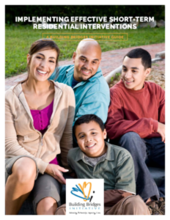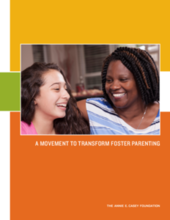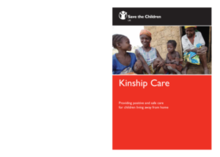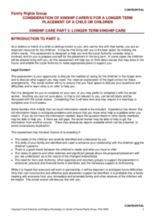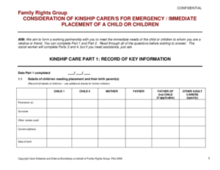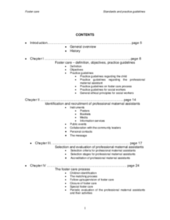This section offers guidance on recruiting, selecting, and training caregivers; placing children in care; evaluating placements; and understanding the functions of social workers.
Displaying 1 - 6 of 6
This document serves as a guide for implementing short-term residential care interventions; grounded in evidence-based practice, the Guide provides "7 essential elements of short-term residential intervention" with case examples from the field in the United States.
This report explores ways for public agencies to ensure that children receive the care they need by enlisting more volunteers to step forward as foster parents and by encouraging the extraordinary individuals who have already answered the call to continue their commitment to care. The report identifies three major themes for engaging and empowering foster parents: ensuring quality caregiving for children; forging strong relationships; and, finding and keeping more amazing caregivers.
Briefing paper on the global characteristics of kinship care, the required policy and legislative framework, and the role of practitioners in assessing, supporting, and monitoring kinship care
A template for assessing the suitability of kinship caregivers in the longer term, and for planning the care of a child in kinship care.
A template for assessing the suitability of kinship caregivers in the short term, and for planning the care of a child in kinship care. There are sections that can be given to potential caregivers to help them prepare for caring for a child.
This document contains a set of basic principles for foster care. It includes chapters on recruiting, selecting and training caregivers, placing children, evaluating placements, and the functions of social workers.

